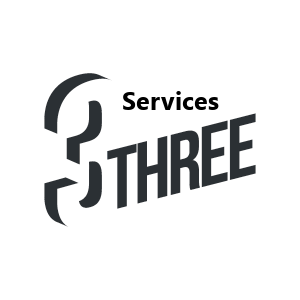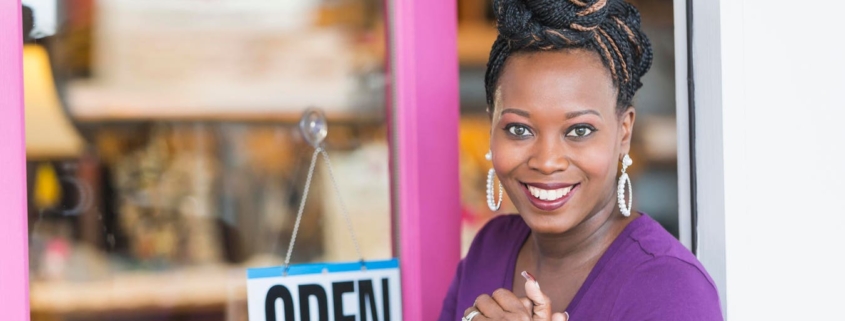Can Buying A Small Business Replace Your Six-Figure Salary After 50?
Can Buying a Small Business Replace Your Six-Figure Salary After 50?
A new CEO came in and removed my boss. I was invited to interview for the role, but another one of my colleagues was selected, so I’m concerned about job security. I don’t think I’m going to lose my job immediately – maybe I have a year – but I’m almost 60, and finding a similar role and six-figure salary will be tough. I spent many years previously working in a lower-paying industry and am just now making a good salary that has allowed me to pay off debt from my low-salary days and build some savings. My financial advisor says I’m on track to retire, if I maintain my current savings rate for another 10-12 years, so I need to keep earning at this level. While I’m still looking for a comparable job, I’m considering buying a small business that cash flows enough to pay me a six-figure salary. I’m in digital marketing and marketing tech (on the people management side, not the technical stuff), and there are businesses which cash flow enough, but they cost several million dollars. I would get an SBA loan, which I would have to personally guarantee, and I have an old friend who would come in as an equity investor to provide the down payment. Is buying a small business instead of working a job a potential alternative? – Older Job Seeker Thinking About Entrepreneurship
There are a lot of different issues facing this almost-60 job seeker, but it’s a positive first step to be wide-eyed and aware of what they’re facing. Additionally, while it may be difficult to juggle a late-career job search and the due diligence around buying a small business, it’s smart to keep both options open until you’re fully decided. If your job feels insecure, it may be tempting to think you can effectively buy yourself a salary by buying a small business, but there are risks involved.
Consider The Financial Risk Of Buying A Small Business
Using An SBA Loan To Fund A Business
Yes, you can get a loan to buy a business, such as from the SBA (Small Business Administration) or from the previous owner who might offer seller financing as part of the purchase. In the case of the SBA, you are personally guaranteeing that loan. In this case, where the target businesses costs several million dollars, that’s a seven-figure loan you would be on the hook for should the business not work out. Even if due diligence before the purchase is your superpower, you can’t predict future market conditions, new technology or processes that disrupt or eliminate your business advantage or simply an overall economy slowdown (another pandemic?) that hurts your otherwise solid business.
Buying A Business In Your Late 50s
It’s an even greater risk in your late 50s because your runway to build the business up or to recover from setbacks is shorter. You might plan to work the next 10+ years, but your health may have other plans. The compound interest that grows whatever profits you can invest (either in the business or into your retirement) doesn’t have as many years to compound. At the same time, you have taken on new debt in your later years when ideally your expenses should be decreasing.
Your Retirement Plan Factors Into Career Decisions
Retirement planning and career planning go hand-in-hand, especially as you get later in your career. You have fewer career moves to make before retirement starts. Therefore, each new move you make carries even more weight, and buying a business is a significant move.
Compare The Risk-Reward Tradeoff Of Buying A Business To Finding Another Job
Pros And Cons Of Business Ownership At This Stage In Your Career
The risks of business ownership include the high financial cost of the purchase price and the debt, as well as the short runway to grow or recover. However, there are rewards to being a business owner, especially if you have an interest in entrepreneurship. Running your own business gives you more agency and autonomy than when you work for someone else.
Pros And Cons Of Finding Another Job
If you liked your previous role, finding another job in that same function and industry has the advantage of keeping you in a career that you enjoy. Buying a small business is a career change to entrepreneur. However, as much as you may love your current career, a disadvantage of working for someone else is the lack of security – whether it’s a new CEO coming in, disruptions to your industry, or a downturn in the overall economy meaning layoffs looming for everyone.
Plan Your Transition From Employee to Business Owner
Choosing The Right Business To Buy
If you do decide to buy a business, choose a business you understand well. Older Job Seeker mentioned that they are looking at martech businesses, though their experience is not on the technical side, but rather as a people manager. While managing staff will be critical to any business you run, especially if you’re looking for a cash-flowing business that must run from Day One, people management is not the only skill you’ll need. If you don’t have the technical expertise to work the business yourself, what is your plan for staff turnover? If you have not been hands-on in the work of the business you’re buying, how will you troubleshoot when a problem arises that was not uncovered in the pre-purchase due diligence or is new to current business conditions?
Evaluate Whether A Business Can Replace Your Salary
Your due diligence needs to ensure that this business is running on its own and turning a profit that can replace your salary. This means the business has current contracts/ clients generating revenue, effective people to do the work and maintain customer relationships, and salespeople and processes in place to sell new work. There also needs to be enough profit to pay down the SBA loan, seller financing or whatever debt you used to buy the business. Since Older Job Seeker is bringing in an equity investor for additional cash, they need to vet the business as having enough existing profit or future opportunity to satisfy that equity investor.
The Bottom Line: Should You Buy A Business Or Keep Job Hunting?
Ideally you keep both options open for your next career move until you’re sure what you want. While buying a business is risky, the reality of finding a six-figure job at almost 60 is also challenging. Employers assume late-career professionals are more expensive due to the additional experience, and some may stereotype them as less adaptable. When you are passed over for a promotion (like Older Job Seeker), that might signal a ceiling in the type of job they are competitive for. There is no 100% job security working for someone else, so buying a business is a reasonable alternative to consider.












Leave a Reply
Want to join the discussion?Feel free to contribute!